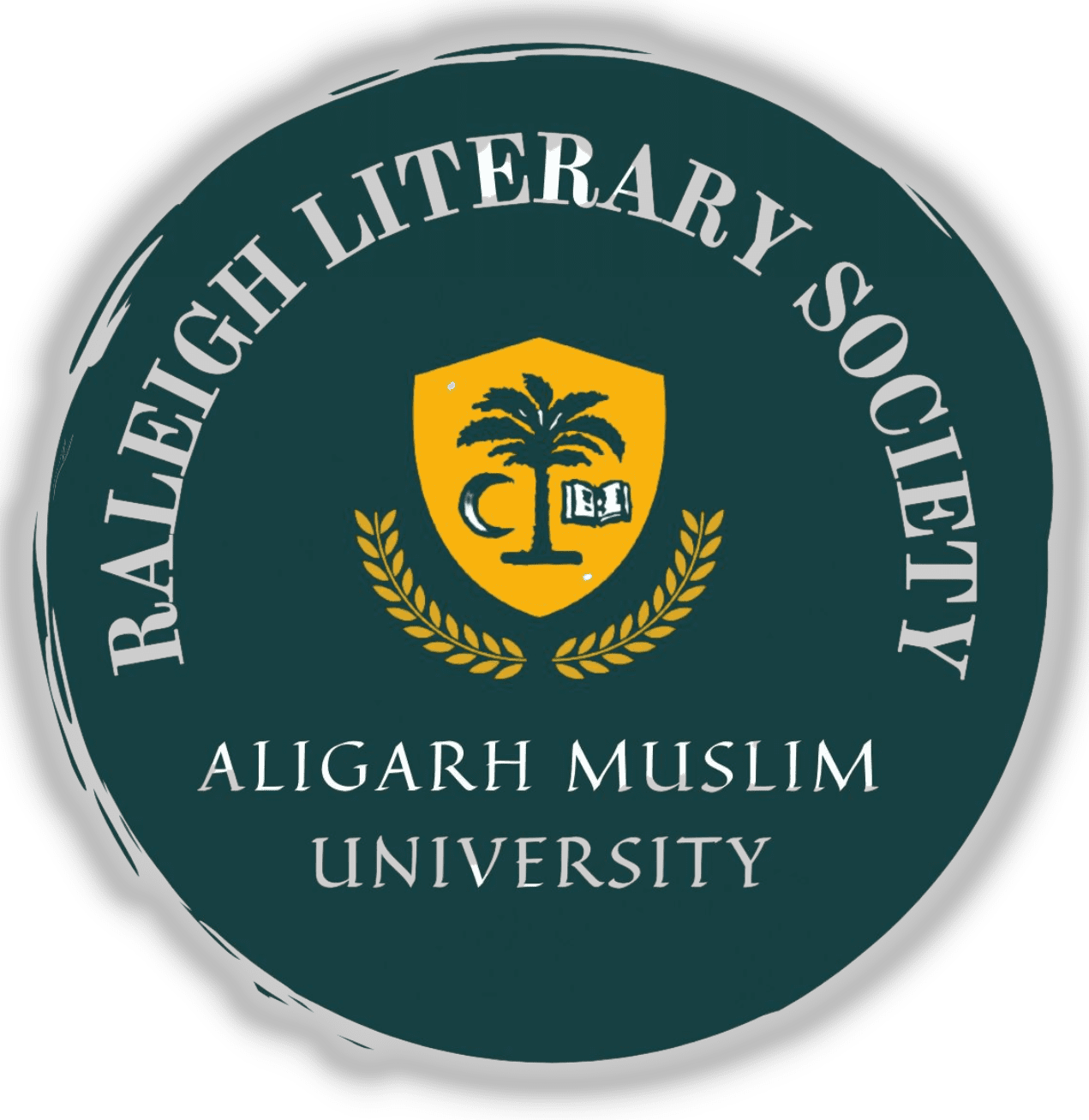


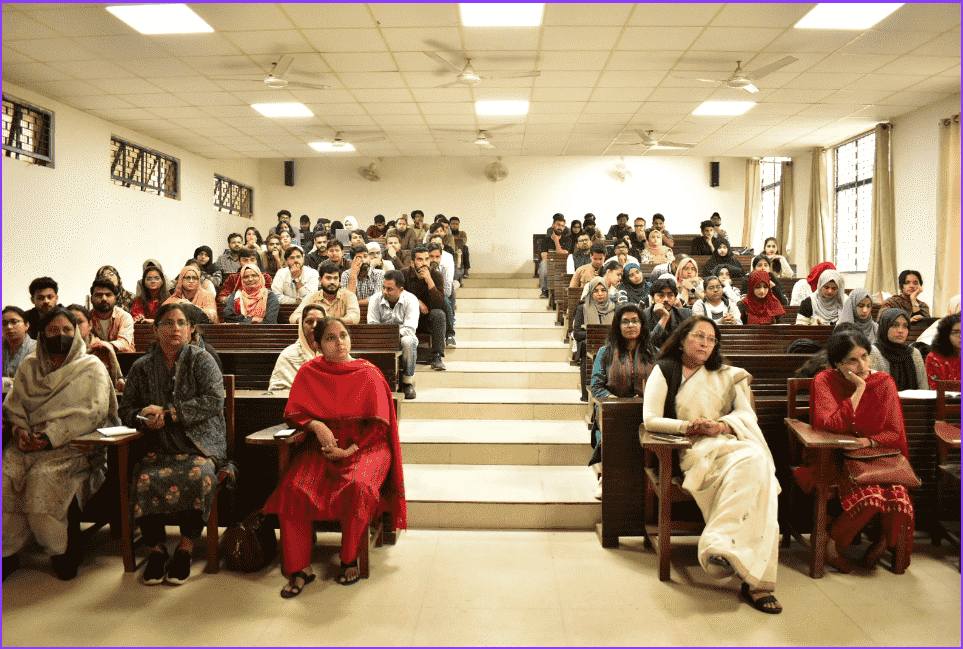
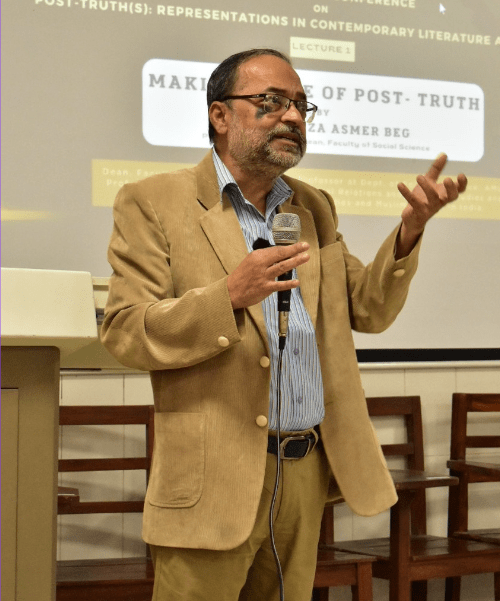
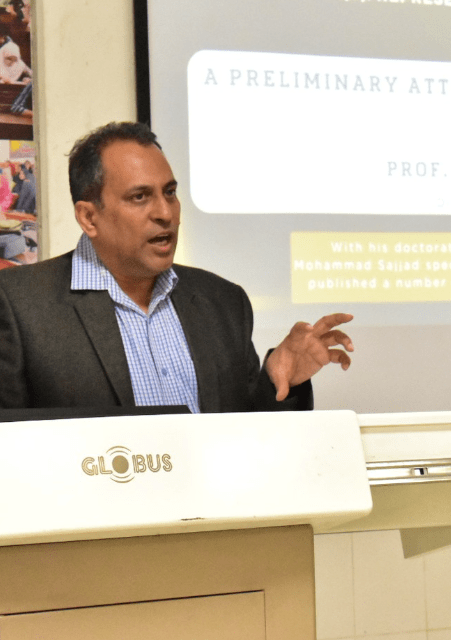
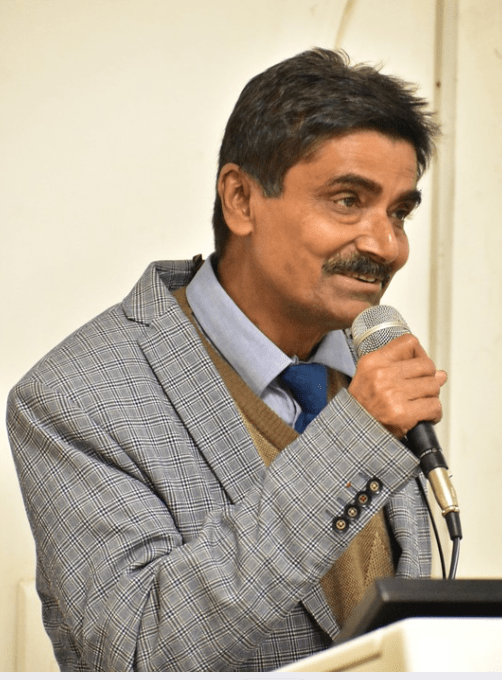
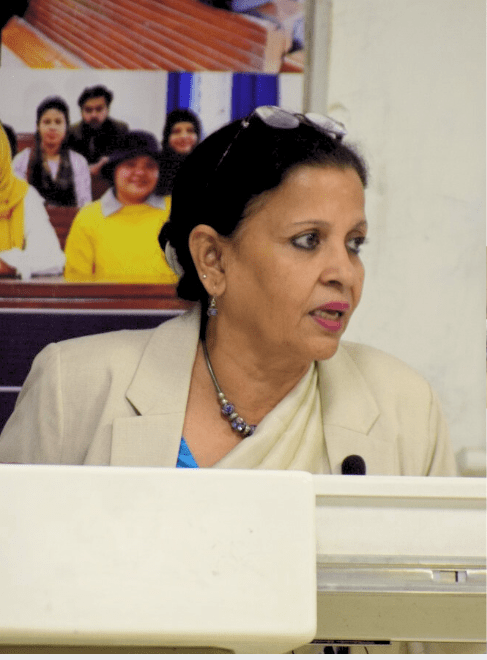
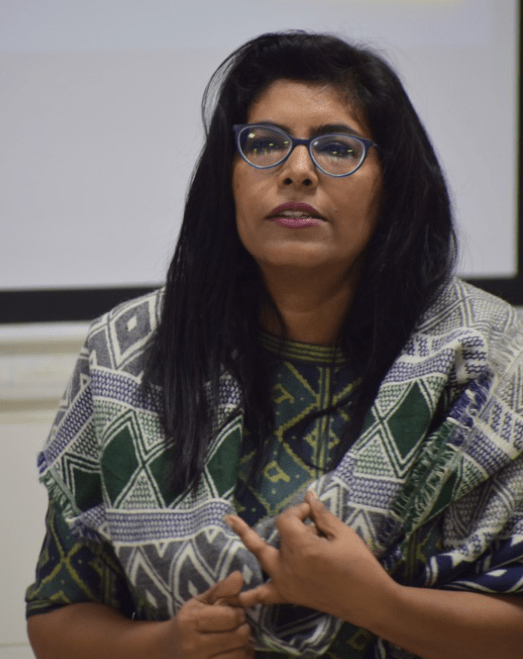
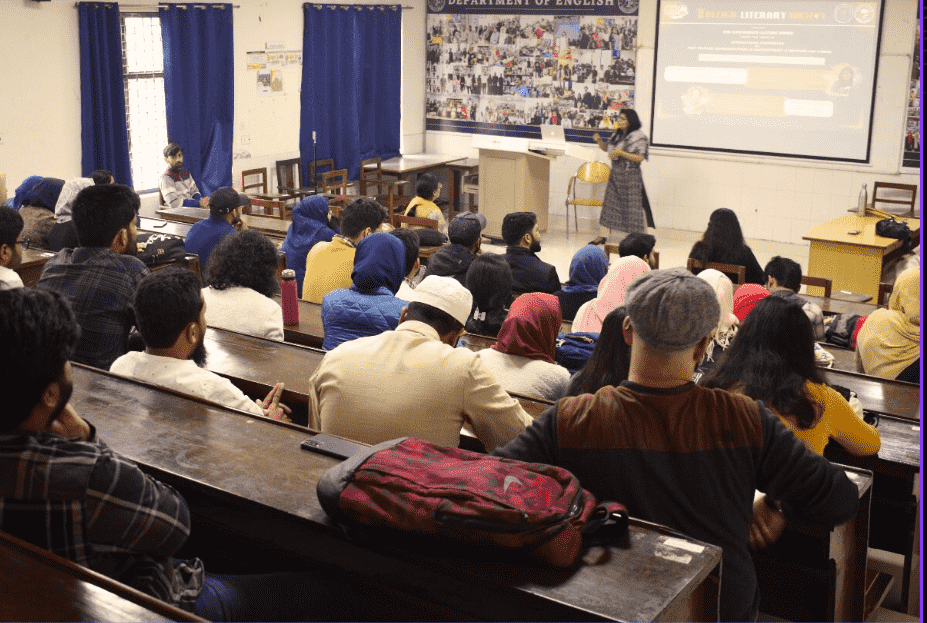
The Raleigh Literary Society, under the aegis of the International Conference on Post-Truth(s): Representations in Contemporary Literature and Cinema, organised a rich series of Pre-Conference Lectures spanning three days, 22nd, 24th, and 25th of November, 2023, unfolding as a profound exploration into the complexities of post-truth. The series featured illuminating talks by Professors Mirza Asmer Beg, Prof. Mohammad Sajjad, Prof. Aysha Munira Rasheed, as well as a compelling valedictory address by Professor SN Zeba. Day One: Lecture 1 — Making Sense of Post-Truth by Prof. Mirza Asmer Beg The series commenced with Professor Mirza Asmer Beg, the esteemed Dean of the Faculty of Social Science and a prominent figure in the Department of Political Science. His lecture, titled "Making Sense of Post-Truth," provided a historical context for post-truth, tracing its roots to the post-World War II era. Prof. Beg delved into the shift from overt imperialism to a nuanced approach centred on obtaining consent. “Imperialism and colonialism [...] went out of style,” he said, “but the need to maintain dominance and control over the masses persisted; today, consent is obtained rather than coercion.” This evolution, he argued, laid the groundwork for the emergence of post-truth. The intricate link between knowledge and consent in contemporary global politics was emphasized, setting the stage for a deeper understanding of post-truth's significance. Exploring the impact of social media, Professor Beg highlighted its role in misinformation proliferation and the blurring of lines between facts and opinions. He argued that post-truth challenges the traditional reliance on truth and facts in shaping public discourse. The lecture concluded with a poignant examination of Trump's election, showcasing how the erosion of the concept of "truth" led to a dominance of subjective feelings over objective facts. Day Two: Lecture 2 —A Preliminary Attempt Towards Understanding Post-Truth by Prof. Mohammad Sajjad The second day featured a thought-provoking lecture by Professor Mohammad Sajjad from the Department of History, Aligarh Muslim University. His talk, titled 'A Preliminary Attempt Towards Understanding Post-Truth' spanned various dimensions, tracing the evolution of post-truth, its impact on society, and its intersection with historical, political, and cultural contexts. Professor Sajjad began by exploring the origins of the concept, noting its roots in philosophies emphasizing the illusory nature of everything. The lecture addressed the distinction between post-truth and rumor, emphasizing the acute instability inflicted by capitalism, as described by Frances Fukuyama. “We as free people have freely decided that we want to live in a post-truth world,” he noted. The imperative for universities to confront post-truth by fostering truth-seeking rather than succumbing to the prevailing trend of truth production was a key takeaway from the session. Towards the conclusion of the lecture, he gave one poignant opinion, noting “[...] somewhere objective truth does exist because if it does not exist we would not be speaking the truth at all.” Day 3: Lecture 3 — Posting Truth in the Times of Post-Truth by Prof. Aysha Munira Rasheed The series reached its conclusion on Day 3 with Professor Aysha Munira Rasheed's lecture on 'Posting Truth in the Times of Post-Truth.' Professor Rasheed, expressing gratitude for the opportunity, delved into the contemporary phenomenon of post-truth, providing a nuanced exploration of its implications on public opinion. Beginning with a definition of post-truth as a circumstance where objective facts wield diminished influence over public opinion, Professor Rasheed highlighted the increasing role of emotions, leading to a trend of pandering to emotions for mass control. Drawing from Nietzsche's philosophy, she illuminated the subject in light of the will to power and the nature of knowledge production. “In the human world, we produce knowledge which is very anthropocentric,” she said. She emphasized the interconnectedness of post-truth and post-modernism, linking the multiplicity of truths to the realm of advertisements and challenging the notion of a single, objective truth. Referencing Akira Kurosawa's 'Rashomon,' Professor Rasheed also illustrated the post-modern Rashomon effect, where multiple narrators present different versions of a story. The lecture concluded with a reflection on the impact of post-truth phenomena on global public opinion, discussing the role of fact-checkers and the challenges of media trials. Professor Rasheed also emphasised the potential for marginalized voices to reshape narratives through affirmative sabotage. “People sitting on the margins also get to have their say,” she noted, “and make their version of truth known to the world. We have 'truths.'” Valedictory Address by Prof. SN Zeba The culmination of the Pre-Conference Lecture Series was marked by an insightful Valedictory Address delivered by Professor SN Zeba, former Chairperson, Department of English, as well as former Dean, Faculty of Arts. Professor Zeba commenced the address by acknowledging the academic richness embedded in the lecture series. She delved into the pervasive influence of post-truth politics, emphasizing that public debates are crafted for emotional resonance rather than rational discourse. “Most observers in the English-speaking world agree that post-truth is the burial of objective facts by the avalanche of media,” she noted. She also underscored the role of populist leaders as 'merchants of post-truth,' employing this phenomenon as a potent tool for manipulation. Instances such as Trump's election victory, achieved through the dissemination of total falsehoods, were presented as stark illustrations of the impact of post-truth on political landscapes. In the face of these challenges, Professor Zeba stressed the importance of education as the primary tool to counter post-truth. Encouraging the audience to be skeptical about information presented to them, she noted that democracy relies on citizens capable of distinguishing between truth and post-truth. The valedictory address also touched upon the role of literary criticism in an era characterized by propaganda, fake news, lies, and post-truth. As the Pre-Conference Lecture Series concluded, Professor SN Zeba left the audience with a call to carry forward the torch of knowledge and critical thinking. The event had provided a platform for engaging with pressing intellectual issues and set the tone for the upcoming conference.